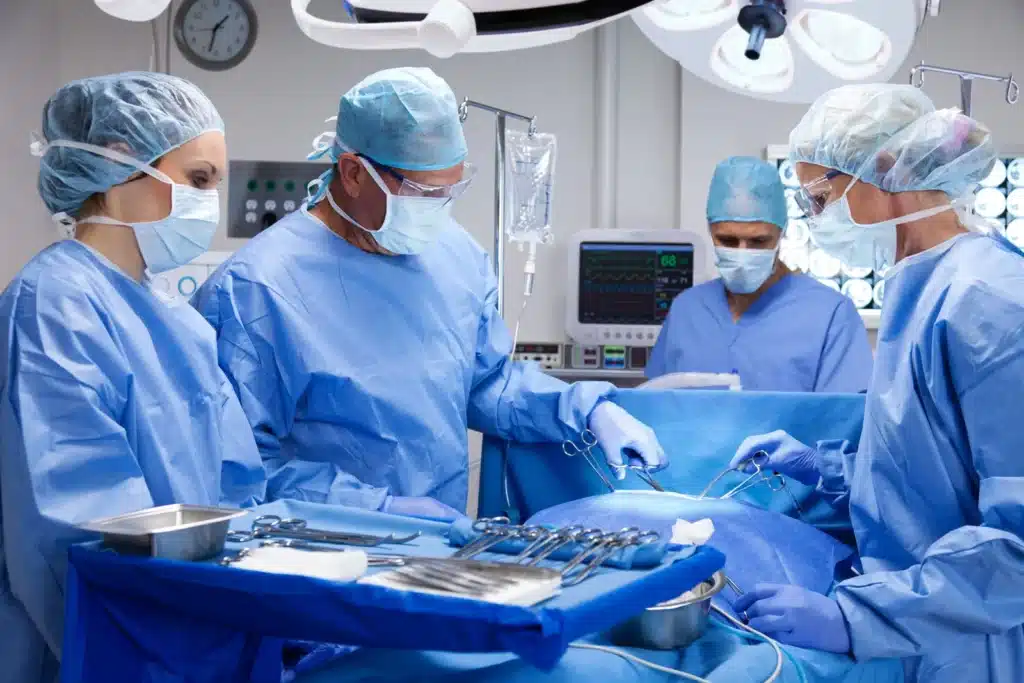How to Choose a Plastic Surgeon: 8 Essential Tips
Understanding Board Certification
Certification Importance
Board certification signifies a surgeon’s dedication to the highest standards of patient care. Choosing a surgeon certified by the American Board of Plastic Surgery or its equivalent in your country ensures they have met rigorous standards.
This process includes extensive training and testing in plastic surgery. It guarantees the surgeon has the necessary skills and knowledge to perform surgeries safely and effectively. Patients should prioritize this certification when selecting their surgeon.
Rigorous Training
Board-certified surgeons undergo a demanding process to earn their status. They complete years of specialized training beyond medical school, including residencies specifically in plastic surgery.
They must also pass comprehensive exams that test their expertise in this field. This intense preparation is crucial for handling complex surgical procedures and managing any complications that may arise.
Cosmetic vs. Plastic Surgeons
It’s vital to understand the difference between cosmetic surgeons and plastic surgeons regarding certification and training. Cosmetic surgeons may not have undergone the same rigorous plastic surgery training as board-certified plastic surgeons.
While both can perform aesthetic procedures, board-certified plastic surgeons possess a broader range of skills and knowledge. This distinction is essential for patients seeking safe, high-quality surgical outcomes.
Assessing Experience and Results
Experience Level
The surgeon’s experience is crucial. It directly impacts your aesthetic goals and recovery. Look for a surgeon who has a proven track record in the procedure you’re interested in. This ensures they’ve encountered various situations and can handle yours with expertise.
Their years of work refine their skills, making them better equipped to guide you through your journey. Ask how many times they’ve performed the procedure. More importantly, inquire about their success rates. This information will help you gauge if their experience aligns with your needs.
Aesthetic Style
Understanding a surgeon’s aesthetic style is key to achieving your desired results. Request before-and-after photos of previous patients. These visuals offer insight into the surgeon’s work quality and aesthetic approach.
Photos also reveal the consistency of outcomes across different patients. You want someone whose results consistently meet or exceed expectations. If their style doesn’t resonate with your vision, it might be time to continue your search.
Outcome Consistency
Consistent successful outcomes are a testament to a surgeon’s skill level and dedication. They indicate that the surgeon can replicate quality results for various body types and goals.
During consultations, ask specific questions about recovery times and any complications encountered in past procedures. Their answers will further illuminate their ability to handle diverse cases effectively, ensuring they can help improve your life.
Evaluating Patient Reviews
Review Range
After assessing a surgeon’s experience and results, reading patient reviews is crucial. It helps to understand the surgeon’s performance from those who have experienced it firsthand.
Look for reviews across different platforms. This approach ensures you get a comprehensive view of the surgeon’s skills and bedside manner. Reviews can reveal much about a surgeon’s ability to handle complex medical histories or specific patient needs.
Skill Feedback
Patient testimonials often highlight a surgeon’s technical prowess.
Search for feedback that details the outcome of their procedures. Positive outcomes in these reviews can be a good indicator of skill. However, remember that each person’s body reacts differently to surgery.
Bedside Manner
The way a surgeon interacts with patients is just as important as their surgical skill.
Reviews that mention the surgeon’s approachability, empathy, and support are valuable. These qualities can significantly impact your comfort level and overall experience.
Authenticity Check
Be wary of overly polished or uniform reviews.
Genuine patient experiences vary and should reflect both successes and areas for improvement. Authentic testimonials provide a more accurate picture of what to expect.
Prioritizing Safety Standards
Safety Protocols
It’s crucial that the plastic surgeon you choose not only meets but exceeds safety standards. This ensures they are prepared for any situation and prioritize patient safety above all else.
They should have a comprehensive understanding of the minimum criteria necessary for a safe surgical environment. This includes sterile techniques, proper equipment, and a trained team ready to assist. Ask them directly about their safety protocols and what measures they take to maintain a secure operating room.
Hospital Privileges
Hospital privileges are a green flag when selecting a plastic surgeon. They indicate that the surgeon has been vetted and approved by their peers in the medical community.
Having these privileges means the surgeon can perform procedures in a hospital setting if needed. It’s an added layer of reassurance for patients, knowing their surgeon meets the high standards required by hospitals.
Emergency Plans
A clear plan for handling emergencies or complications is non-negotiable. Your surgeon should be able to articulate how they manage unexpected issues during surgery.
This includes having access to emergency equipment and knowing when to transfer a patient to a hospital if necessary. The ability to respond swiftly and efficiently in such situations speaks volumes about a surgeon’s commitment to patient safety.
Choosing Accredited Facilities
Safety Protocols
Accredited facilities follow strict safety protocols. This ensures every procedure upholds the highest standards of care. They undergo regular inspections to maintain their status. This guarantees that they are always ready for emergencies.
Patients can feel confident knowing these facilities prioritize their well-being.
Accreditation Bodies
Different organizations grant accreditation, such as the AAAASF and JCAHO. Each sets rigorous standards for facilities to meet. These standards cover everything from the quality of care to facility management.
Understanding these bodies helps patients choose a provider with confidence.
Facility Credentials
Facilities must display their credentials openly. This includes any memberships or accreditations they have earned. Patients should look for these when choosing a facility.
These credentials are a testament to a facility’s commitment to excellence.
Importance of Thorough Consultations
Goal Discussion
A thorough consultation is your first real step in choosing a plastic surgeon. It’s the perfect time to discuss your goals and set realistic expectations. Bring photos or examples to clearly communicate what you’re hoping to achieve.
It’s also crucial to express any concerns you might have. This openness paves the way for honest discussions about potential complications. Understanding these risks beforehand can help manage expectations.
Question List
Prepare a list of questions before your consultation. This ensures you cover all bases, from surgical techniques to recovery times. Questions can range from “How many times have you performed this procedure?” to “What can I expect during recovery?”
This preparation maximizes the value of your consultation time. It shows the surgeon that you’re informed and serious about proceeding.
Surgeon Evaluation
The consultation offers a chance to evaluate the surgeon’s communication style. Notice how they explain procedures and address your concerns. A good surgeon will patiently answer all your questions and make sure you understand everything.
You should also pay attention to how comfortable you feel with the staff. They will be part of your journey, so feeling at ease with them is important.
Seeking Custom Treatment Plans
Tailored Plans
Choosing a plastic surgeon who crafts custom treatment plans is crucial. These plans consider your unique needs and goals. Surgeons skilled in various medical specialties can offer a wide range of options.
They listen carefully to understand what you hope to achieve. This ensures the plan aligns with your expectations. It’s about finding the right care, not just any care.
Better Outcomes
Personalized treatment leads to better outcomes. Patients feel their needs are understood and met. This boosts satisfaction and confidence in the results.
Surgeons who tailor their approach can adjust techniques based on individual anatomy and desires. They aim for outcomes that look natural and fulfill patient goals.
Avoiding Unnecessary Procedures
Be wary of surgeons pushing additional procedures you don’t need or want. Some may suggest extra treatments that don’t align with your objectives.
Choose someone who respects your decisions and focuses on your priorities. They should explain why each part of the plan is recommended, ensuring it serves a purpose in achieving your desired outcome.
Building a Strong Surgeon Relationship
Trust Factor
Building trust with your plastic surgeon is paramount. It’s the foundation of a successful outcome. You need to feel comfortable sharing your concerns and expectations. This comfort level allows for open dialogue, essential for tailoring treatment to your needs.
Surgeons who earn your trust do so by being transparent about the procedures, risks, and expected outcomes. They make you feel heard and valued. This mutual respect fosters a positive environment conducive to healing.
Open Communication
Open communication with your surgeon candidates cannot be overstated. It ensures that all your questions are answered, leaving no room for doubt or anxiety. A good plastic surgeon encourages this exchange, making themselves available to address any concerns.
This ongoing communication is crucial before, during, and after surgery. It helps manage expectations and prepares you mentally and physically for the journey ahead.

Follow-Up Care
Choosing a surgeon who provides comprehensive follow-up care is beneficial. Post-surgery support is critical for recovery and achieving desired results. Surgeons committed to follow-up care demonstrate their dedication to patient welfare beyond the operating room.
They monitor your progress closely, adjusting care plans as needed. This level of attention guarantees that any complications are addressed promptly, ensuring a smoother recovery process.
Summary
Choosing the right plastic surgeon is crucial for your safety and the success of your procedure. You’ve learned the importance of board certification, experience, patient reviews, safety standards, accredited facilities, thorough consultations, custom treatment plans, and a strong surgeon-patient relationship. These elements are key to ensuring you’re in capable hands. Trust and expertise should guide your decision-making process.
Now it’s time to take action. Start by listing potential surgeons who meet these criteria. Schedule consultations to discuss your goals and concerns. Remember, this choice will impact your health and confidence. Choose wisely and start your journey toward the results you desire.
Frequently Asked Questions
How do I know if a plastic surgeon is board-certified?
Board certification is a critical factor in choosing a plastic surgeon. Verify their certification by checking with the American Board of Plastic Surgery or the medical board in your country.
What should I look for in a plastic surgeon’s experience and results?
Assess before-and-after photos, the number of surgeries performed, and the variety of procedures they specialize in. This will give you insight into their expertise and outcomes.
How important are patient reviews when choosing a plastic surgeon?
Patient reviews provide real-life insights into their experiences, satisfaction levels, and the surgeon’s bedside manner. They are an essential tool for evaluating potential surgeons.
Why should safety standards be a priority when selecting a plastic surgeon?
Prioritizing safety ensures that your procedure will be performed under optimal conditions, minimizing risks and maximizing outcomes. Look for surgeons who adhere to high safety protocols.
What does it mean to choose an accredited facility for my surgery?
Accredited facilities meet stringent standards for equipment, staff qualifications, and emergency readiness, ensuring a safe environment for your procedure.
Why is a thorough consultation important before undergoing plastic surgery?
A thorough consultation allows you to discuss your goals, understand potential outcomes, and evaluate the surgeon’s approach to care. It’s crucial for setting realistic expectations and building trust.
How does seeking a custom treatment plan benefit me?
Custom treatment plans are tailored to your specific needs and goals, ensuring personalized care that optimizes results while considering your unique physical characteristics.






